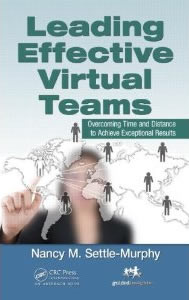Baseball may not be your thing. And if you’re from certain regions of the U.S., you may not want to hear one more thing about a winning Boston team. (I admit, it can get tiresome.) But please hear me out: The 2018 Boston Red Sox team was the best evah to take the field in Fenway Park, and ranks as one of the best baseball teams of all time, anywhere.
Why should you care? Because if you want to know how to cultivate a cohesive team bound together by mutual respect, trust, pride, passion, and determination to achieve a shared goal, you can learn a lot by analyzing the confluence of factors that contributed to the most magnificent team in the history of baseball. (Full disclosure: This long-time Boston baseball fan is known to indulge in a bit of hyperbole.)
After poring over dozens of articles and interviews appearing days after the Sox cemented their fourth World Series victory in 14 years, I’ve reflected on lessons that leaders and team members of any can kind learn from this year’s Red Sox team. Rather than focusing on the unprecedented number of wins (119, including post-season play!), their astounding batting average with two outs in the off-season (500%!), or David Price’s jaw-dropping ERA in Series play (1.98!), I focus here on the team dynamics and leadership that made this team the stuff fairytales are made of.
- Lead with your mind and heart. Despite the fact that this is his first year managing, Sox manager Alex Cora has almost made it seem easy to win more games than any team in Red Sox history. From the very first day of spring training, Cora has demonstrated a rare combination of an encyclopedic knowledge of baseball and a deep understanding of each player’s skills and strengths, enabling him to make split-second decisions, many of them confounding, counter-intuitive, and almost always spot on. He is credited for being a “great unifier” who goes out of his way to build strong relationships with everyone on his team. He is a keen student of baseball analytics, and uses his knowledge to help each player leverage his strengths and realize his full potential. Watching him in the dugout is like watching a chess master at the top of his game. He doesn’t miss a trick, and rarely displays a temper. Players love him, and he loves his team right back. (And speaking of heart, when asked what stipulations he wanted in his contract, he had just one request: a planeload of supplies to be flown to his hometown in Puerto Rico ravaged by Maria. As he hoisted the World Series trophy in celebration, his asked that the championship trophy be brought to Puerto Rico.)
- Have faith that your team members can rise to the occasion, especially after a rough spell. David Price, the most expensive pitcher in baseball, hadn’t won a single postseason start in his 11-year career before this season. Now he has won three, including a commanding performance against the Dodgers on short rest in Game 5. While some opinionated sports pundits claimed that letting Price start in any postseason game would be a “kiss of death” for the Sox, manager Alex Cora had faith in Price, despite his dismal record. Said Jack Morris, the Hall of Fame starter who covered the World Series for MLB.com, “There are a lot of managers who would have put him out in the bullpen and left him there. But he said, ‘No, we need you,’ and Price went out there and did it.” Price, at 33, is the elder statesman of the team and often helps the younger pitchers analyze their performance and sharpen their skills. Teammates marvel at how caring and supportive he is, claiming that Price is the best teammate they have ever had.
- Be prepared to make the tough decisions. While Cora is known for showing each player respect and compassion, regardless of his innate talent or history, he’s willing to make difficult decisions to win a game. For example, he may ask a starting pitcher to pitch in relief for six innings, or ask a relief pitcher to start a game with virtually no warning. He often blurs the lines between positions, asking outfielders to play infield, or vice-versa. He may leave a pitcher in too long or take one out prematurely. Somehow it all seems to work. He has faith in his team, and they have faith in him. Says Sox infielder Brock Holt: “It makes it so much easier as a team to go out and perform, when you know what’s going in his head. It’s the overall vibe he brings to the team, to the clubhouse….is so positive that it’s easy to go out and do what we’ve been doing.”
- Celebrate the team’s work, even when it might have been in vain. After Game 3 (a particularly brutal loss for the Sox, coming after 18 innings and over seven hours – the longest game in World Series history), Cora called a team meeting. (For a guy who typically eschews meetings, this was a big deal.) As his players gathered, he thanked them for their efforts and said how proud he is to be part of this team. He called out starting pitcher Nathan Eovaldi for pitching six scoreless innings in relief. Everyone in the room burst into a spontaneous standing ovation with tears all around. According to teammate Rick Porcello, “What Nathan did was the epitome of what our team is about. Every player does what he can to help the team. It’s about everyone pulling together. We just lost a game in 18 innings. But after that, it felt like we won.”
- Make time for real conversations.Unlike many other managers who display fits of temper when things go awry, Cora always presents a calm, unruffled demeanor even in the toughest situations. When asked whether he ever lets loose on players away from the cameras, Cora replied that he likes to have “casual” 1:1 conversations to share his observations, talk things through and come up with a game plan for next time. Players say his feedback is thoughtful, kind, and helpful, and that they appreciate the transparency he brings to all of his communications.
- Treat your team as you would your family. On the morning of what would be the final game of the Series, Cora hosted a breakfast for players and their families. Players’ parents made a point of thanking Cora for the wonderful way he had treated their sons. Remarked ESPN Senior Writer Tim Keown, “He wanted a team that felt like a family, one constructed out of tolerance and diversity and inclusion. Given the transitory nature of the game, he wanted to create an ecosystem capable of absorbing new members. This breakfast was proof that he and his players had succeeded, that what he had imagined had come true.”
Anyone following the 2018 Red Sox knew this team would be something special from the first time they took the field back in April. “They were just relentless through the season. It was their sense of unity and purpose. I’ve never seen anything like it,” said Sox owner John Henry. Major props go to manager Alex Cora, who created an environment where he and his players all gave each other encouragement, inspiration and guidance when it was most needed, enabling everyone to live up to his full potential. It was a beautiful thing, especially if you’re a Boston fan.
Links
120 Tips for Leading Amazingly Productive Virtual Teams – Our (PDF) tips booklet you can purchase through our site
ABCs of Virtual Leadership – our downloadable PDF tip sheet
Team health check checklist – our downloadable PDF tip sheet
Crafting questions that inspire candor and trust – our downloadable PDF tip sheet
How Sox manager, Alex Cora uses analytics to sharpen each player’s performance – online article by author and blogger Josh Bernoff
Building a championship culture – secrets to Alex Cora’s stunning success – online article by Tim Keown, ESPN Senior Writer




